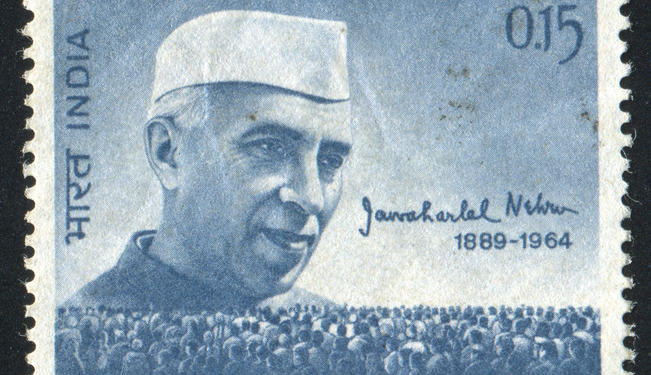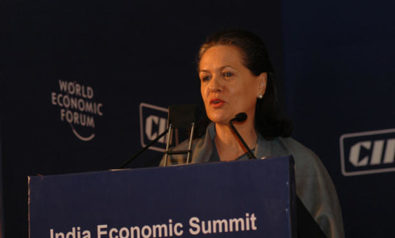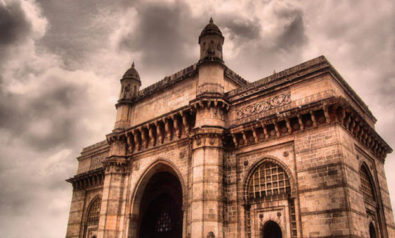
In the 21st Century, Indian politics is still dominated by dynasties, raising concerns about the health of its democracy.
Background
India is a country where familial ties run strong. This often makes individuals secure and society stable. The old adage that blood is thicker than water is more true in India than elsewhere.
Given India’s social structure, it is perhaps inevitable that dynasties have emerged in various professions. Nepotism helps members of powerful families ascend to positions that would otherwise have been beyond their reach. In Bollywood, in big business and, especially, in politics, certain dynasties have come to the fore.
However, it is important to remember that during its struggle for independence, India promised to be different. Sarojini Naidu, a poetess and freedom fighter, became the first woman to become the chairperson of the Indian National Congress on her own merit. India’s constitution was drafted by Bhimrao Ambedkar, a social reformer and scholar, was an untouchable who rose to dizzying heights because of his extraordinary achievements. Mahatma Gandhi, the most famous Indian of the last few centuries, was also a self-made man who was neither from the Brahmin priestly caste nor from the Rajput aristocratic caste.
After independence, India no longer places the same premium on merit. The Nehru dynasty has been in power since 1947, except for brief breaks. Currently, the Italian widow of Nehru’s grandson, Sonia Gandhi, continues to wield power even though she does not occupy any office of the Indian state. Other regional dynasties have also emerged such as the Yadavs in Uttar Pradesh, the Thackerays in Maharashtra and the Karunanidhi clan in Tamil Nadu.
Why Does Dynastic Rule Matter?
The significance of dynasties for India is enormous. First, they raise the issue of competence. If people hold office on account of their birth instead of achievements, this usually leads to bad governance. Second, this brings into question the idea of fairness. Rewarding people for their lineage and not effort is unfair. Third, this in turn leads to corruption. Nepotism leads to power structures based on patronage. It creates a class divided society where power flows from the top. Fourth, in such a system, the powerful always oppose reforms. They preserve their interests by perpetuating the status quo, making change difficult if not impossible. Finally, dynasties weaken democracies. Over time, the average citizen has a lesser say in the running of the state. A few families monopolize power and manipulate the system to their advantage. This results in lower political participation and, eventually, disenchantment with democracy itself.
As India strives to be a world power and flaunt its claim as the world’s largest democracy, it has to curtail the disproportionate power that dynasties wield in its politics.
Image: Copyright © Shutterstock. All Rights Reserved
For more than 10 years, Fair Observer has been free, fair and independent. No billionaire owns us, no advertisers control us. We are a reader-supported nonprofit. Unlike many other publications, we keep our content free for readers regardless of where they live or whether they can afford to pay. We have no paywalls and no ads.
In the post-truth era of fake news, echo chambers and filter bubbles, we publish a plurality of perspectives from around the world. Anyone can publish with us, but everyone goes through a rigorous editorial process. So, you get fact-checked, well-reasoned content instead of noise.
We publish 2,500+ voices from 90+ countries. We also conduct education and training programs on subjects ranging from digital media and journalism to writing and critical thinking. This doesn’t come cheap. Servers, editors, trainers and web developers cost money.
Please consider supporting us on a regular basis as a recurring donor or a sustaining member.
Support Fair Observer
We rely on your support for our independence, diversity and quality.
Will you support FO’s journalism?
We rely on your support for our independence, diversity and quality.







M.M.Sagar
May 28, 2014
I totally agree and feel that you have stolen my thoughts.
Sekari Vaidy
May 27, 2014
The points made are succinct, , accurate and very true. Dynasties of all hues are dangerous. They must go. Our country must prepare younger non-dynastic leaders for the future. This is urgent . Any advantage dynastic descendants enjoy including money power must be neutralised. In the Congress party, sycophancy must be discouraged. The party may have to purge itself of toadies and hangers on who have brought things to this sorry state, by drones playing to the whims of the queen bee, the prince the emerging princess. Time for a break up at some cost and pain. But it must be done for survival.